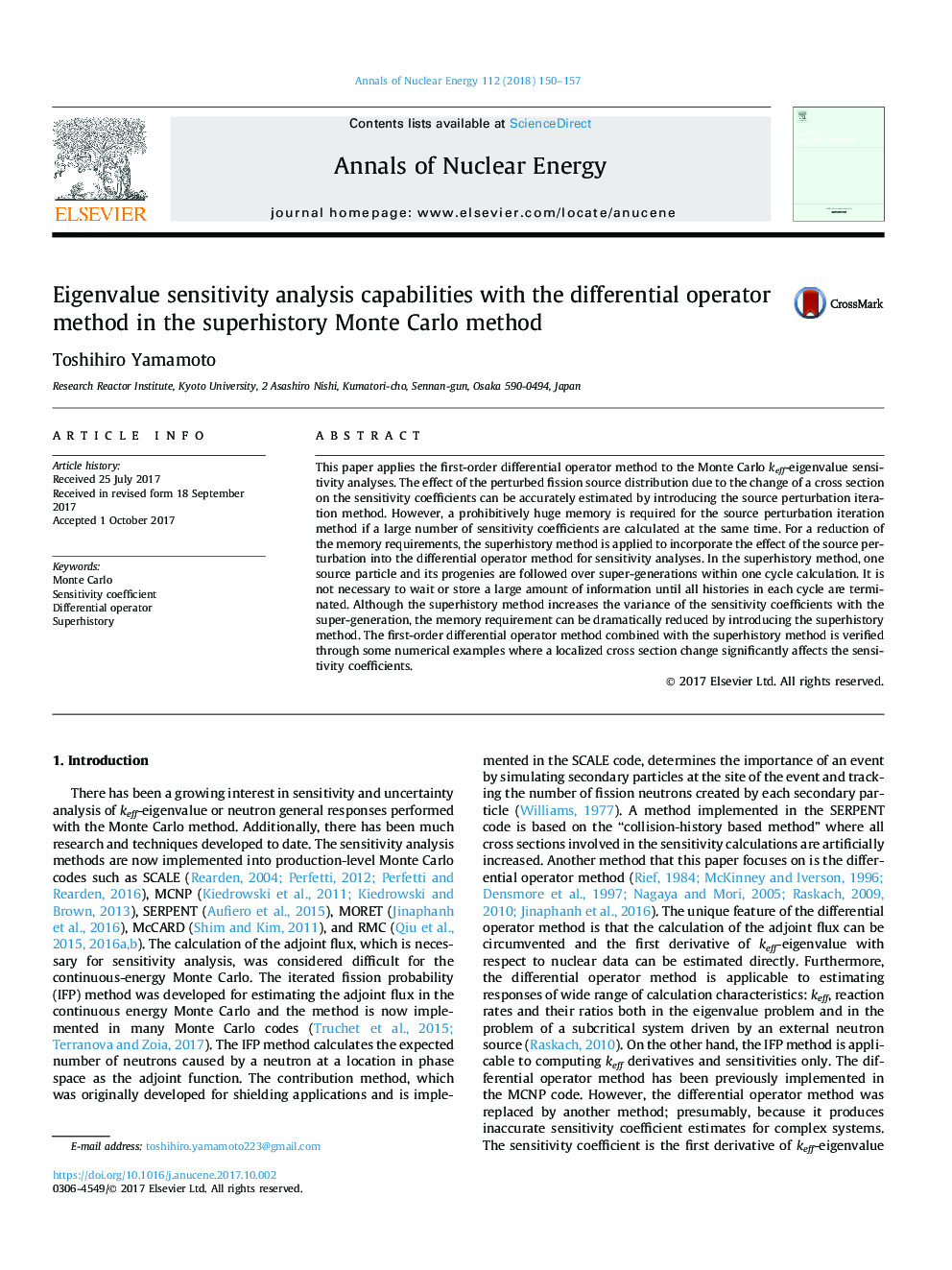| Article ID | Journal | Published Year | Pages | File Type |
|---|---|---|---|---|
| 5474757 | Annals of Nuclear Energy | 2018 | 8 Pages |
Abstract
This paper applies the first-order differential operator method to the Monte Carlo keff-eigenvalue sensitivity analyses. The effect of the perturbed fission source distribution due to the change of a cross section on the sensitivity coefficients can be accurately estimated by introducing the source perturbation iteration method. However, a prohibitively huge memory is required for the source perturbation iteration method if a large number of sensitivity coefficients are calculated at the same time. For a reduction of the memory requirements, the superhistory method is applied to incorporate the effect of the source perturbation into the differential operator method for sensitivity analyses. In the superhistory method, one source particle and its progenies are followed over super-generations within one cycle calculation. It is not necessary to wait or store a large amount of information until all histories in each cycle are terminated. Although the superhistory method increases the variance of the sensitivity coefficients with the super-generation, the memory requirement can be dramatically reduced by introducing the superhistory method. The first-order differential operator method combined with the superhistory method is verified through some numerical examples where a localized cross section change significantly affects the sensitivity coefficients.
Related Topics
Physical Sciences and Engineering
Energy
Energy Engineering and Power Technology
Authors
Toshihiro Yamamoto,
